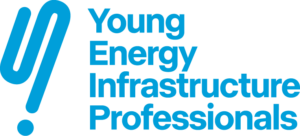
With a goal of enhancing opportunities for success through shared understanding and acceptance, YPAC’s newly launched Indigenous Inclusion Committee embarked on the first of many steps to realize its mandate. With the long-term goal of driving inclusion and reconciliation from within the pipeline industry, YPAC leadership participated in a knowledge building session to provide a basic understanding of Indigenous worldview, knowledge systems, and culture, history, and traditions.
To embark on meaningful change, one first needs to realize their perspectives and seek to understand others’ perspectives. To begin to cross the gap, the IIC’s co-chairs, who participated in the learning session, have summarized their learnings and views of reconciliation: one from the view of a settler, the other from an Indigenous view. Our ask is that as you read through, you reflect on your own perspective, and ask yourself how you can begin to better understand the other side.

A Settlers Perspective – by Matt Thomas, P.Eng.
Engaging with a culture other than your own requires ongoing and personally driven, continuous learning. As part of my journey towards Indigenous reconciliation as a Canadian, I had the opportunity to participate in ‘Indigenous Inclusion Knowledge Building’ session as YPAC’s Indigenous Inclusion Co-Chair.
I am so grateful for our facilitators, Harold Horsefall, Wendy Landry and Annie Korver for developing a truly engaging and thought-provoking session that cultivated an atmosphere to explore Indigenous worldviews, traditional knowledge, belief systems, culture, history and traditions amongst allies. The commitment of these individuals to develop authentic relationships with mutual trust and vulnerability has supported my self-reflection and call to action.
The immersion into Indigenous culture was felt from the outset as Harold and Wendy opened the session with a blessing and a sacrifice of tobacco. We learned about the importance of offering tobacco when asking for assistance from an Indigenous elder, knowledge keeper or person. The symbolism of tobacco represents time, commitment, and sacrifice and parallels the time, commitments and sacrifice need for Indigenous reconciliation.
We discussed land acknowledgments to recognize the traditional First Nations, Métis and Inuit territories. I learned that although non-Indigenous land acknowledgements may differ from those of Indigenous people what matters most is developing a land acknowledgment from the heart with good intentions. Land acknowledgements should lead to more questions about who is being acknowledged and the history of their traditional lands and waters. Together as treaty people we have a shared responsibility for the environment and protecting the future for those generations to come.
The session challenged us mentally and physically as Alycia Two Bears (The Good Woman Medicine Yoga) led a Yoga exercise that incorporated ancestral teachings providing a way for me to personally experience Indigenous spirituality through self-reflection.
The break-out sessions provided a welcoming environment to ask questions about Indigenous ‘cultural learnings’ and the facilitators encouraged us to build a continuous learning culture about Indigenous Peoples, businesses and communities. We answered questions of who to engage in Indigenous Communities, the importance of Elders and the importance of establishing and maintaining meaningful relationships.
As I look forward, I have a responsibility to learn more about First Nations, Métis and Inuit peoples and developing a respectful relationship with them as a non-indigenous settler in Canada. I will continue to be a genuine ally of Indigenous peoples and encourage others to be a positive change and focus on Indigenous inclusion and reconciliation.
Together we can change the world.
Matt Thomas, P.Eng.
YPAC – Indigenous Inclusion Co-Chair
An Indigenous Perspective – by Kaella-Marie Earle
If you told me a few years ago that I’d be a part of the leadership team at Young Pipeliners Association of Canada, I would have laughed and said “not a snowball’s chance in hell”.
At the time, I was still part of an anti-pipeline Indigenous activist community. A community of tough collective voices across the nation, representing Indigenous communities who have endured historically contentious relationships with the oil and gas industry.
I never imagined I’d be a part of the oil and gas industry, and how important that relationship would become to me. I also never imagined how clear I’d be able to see how those two voices could work together in a good way.
It is no secret that Indigenous communities are socio-economically marginalized. A level of struggle exists in many Indigenous communities that is unprecedented in Canada, and to me, its clear that this struggle is born in systemic issues associated with the dark past of Canada’s history – both in resource industry and government.
So how do we repair and revitalize this relationship, and reflect the value that the oil and gas industry can bring to Indigenous communities and vice-versa?
A few months ago, YPAC began their journey toward Indigenous Reconciliation. Not only did we make reconciliation one of our core values, but the leadership team demonstrated from the very beginning our commitment to drive this value throughout the organization, through the formation of an Indigenous Inclusion Committee (IIC). The committee decided at the time that a good place to start our journey was through knowledge building.
So our committee partnered with Indigenous consultants Annie Korver, Wendy Landry and Harold Horsefall, all of which have extensive training and experience teaching others about the breadth of the culture as well as starting conversations about the dark history of Canada in a safe way.
As an Indigenous (Anishinaabeg) person, over many years I’ve spent a lot of time in sessions such as these, and even facilitated many myself. YPAC’s session included a historical overview of treaties, cultural teachings, how to begin dialogue in a respectful way, and also a comparative discussion between Western and Indigenous worldviews. The difference this time for me is that I really never imagined this kind of effort happening in oil and gas, especially in pipelines, with a group of some of the most influential change-makers in the industry. In addition, I also never expected that many of these young leaders would approach our IIC team afterward, looking to collaborate on how they in their respective roles could do better, or even open up their teams to learning about how Indigenous culture could contribute to the mitigation of climate change.
It’s truly incredible.
The other most important difference for me was our YPAC team’s commitment to learning this. A large proportion of the YPAC leadership team was present for the training. Young pipeliners truly care about this, and that was my biggest takeaway as part of this training. Over time, there are so many situations where I feel like our industry has so much farther to go to get to a good place. But if YPAC is any indication about the future of leadership in Canada’s oil and gas industry, which I believe it is, then I am leaving this training with hope that the future of energy in our country will be bright – for both Indigenous communities and oil and gas.
Young pipeliners will be a part of the new future of oil and gas. The future that will include Indigenous communities, share in the wealth of the industry, and build respectful and mutually beneficial relationships.
Lets build the new energy future together. YPAC has already started.
Azhiinikwe Newatchegiizhik
Kaella-Marie Earle
YPAC – Indigenous Inclusion Co-Chair